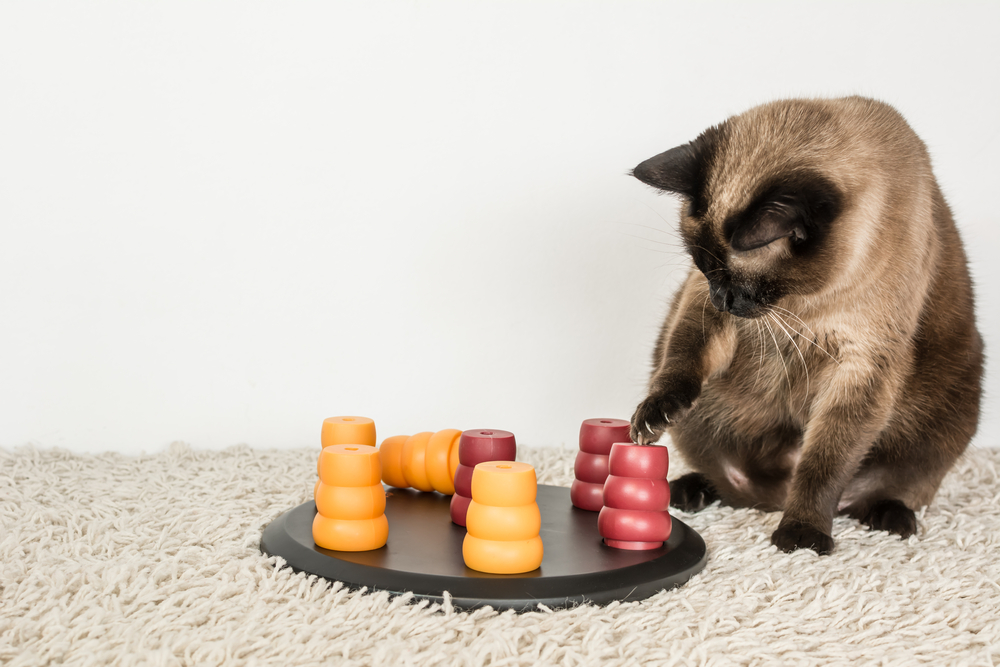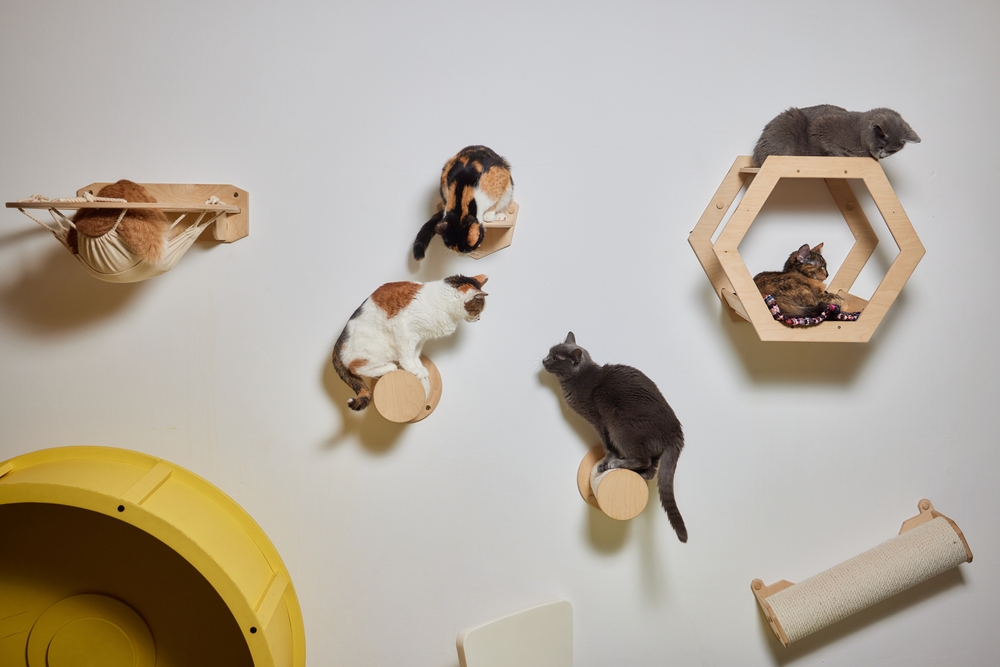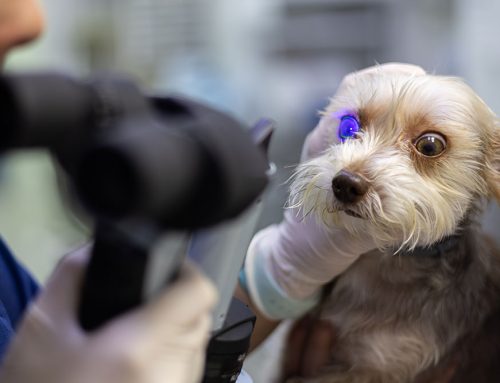Cats are more than just pets; they’re cherished family members who bring joy and companionship into their people’s lives. September is Happy Cat Month, dedicated to ensuring our feline friends remain healthy, energetic, and happy. Our Envision More Veterinary Ophthalmology team explains how you can keep your cat happy, from nutrition and exercise to mental stimulation and regular veterinary exams.
Provide your cat with an enriching environment
Cats are curious, playful creatures who love to explore their surroundings. To keep them mentally stimulated, provide your cat with the following:
- Toys and puzzles — Offer your cat various toys that encourage play and exercise. Puzzle feeders and games can also engage their problem-solving skills.
- Vertical spaces — Cats enjoy climbing and observing from high places, where they can safely observe their surroundings. Cat trees, shelves, and perches provide them with good vantage points. Consider installing cat perches in front of a window and placing bird feeders outside, providing instant entertainment for your whiskered friend.
- Scratching posts — Scratching is necessary for all cats because it helps them maintain claw health. Provide your furry friend with several scratching posts in various materials so they can maintain their claws, stretch, and mark their territory.
Provide your cat with interactive playtime
Your cat’s physical and mental well-being relies on exercise and play. Interact with your furry pal by using toys, such as feather wands, laser pointers, and balls, to engage them in daily play sessions. These play sessions provide exercise and strengthen the bond you and your whiskered pal share.
Feed your cat a balanced diet
High-quality cat food contributes to your feline friend’s overall health, vitality, and happiness. Consult our veterinarian to choose the best food for your cat’s age, health status, and lifestyle. Also, ensure your cat has access to fresh water at all times and monitor their weight regularly to prevent obesity.
Schedule annual wellness exams for your cat
Consistent veterinary visits aim to monitor your cat’s health and catch any potential issues early. During your cat’s visit, they will also receive vaccinations, parasite control, and dental care to ensure they remain healthy. Regular preventive care is the foundation of your furry friend’s health, happiness, and longevity.
Train your cat
Training your cat with positive reinforcement can be a fun and rewarding experience. Teach them tricks, such as sit or high-five, and reward them with small treats and verbal praise. Teaching your cat tricks can help prevent boredom and encourage cognitive development.
Allow your cat supervised outdoor exploration
If you want your feline friend to experience the outdoors safely, consider training them to walk on a harness and leash. Practice their training indoors before venturing out, and to avoid traffic and dog encounter risks, only walk them within your yard. You can also create a secure outdoor enclosure—catio—where they can explore and enjoy fresh air without the risks associated with roaming.
Give your cat a comfortable living space
Ensure your cat has a cozy, quiet space to retreat to when they need rest or solitude. A comfortable bed, warm blankets, and a quiet corner can help them feel secure, safe, and content.
Provide your cat with social interaction
While cats are independent, they still need social interaction, attention, and affection. Spend at least 30 minutes of quality time daily with your cat, whether cuddling, grooming, or simply sitting together. Some furry friends enjoy the company of other pets, but introductions should be gradual.
Offer your cat variety

Cats can become bored with the same routine, so switch up their toys and activities regularly. Introduce new toys, rearrange furniture, or create new hiding spots to keep them intrigued and engaged. New sights, smells, and experiences will enhance your cat’s happiness and interest.
Respect your cat’s boundaries
Learn to interpret your cat’s body language and signs to be able to recognize when they need space or have had enough togetherness. For example, some cats may not enjoy being held or petted on certain body areas, while other cats desire more hands-on attention. Always let your cat approach you when they want attention.
A happy cat is a healthy cat! You can ensure your feline friend leads a fulfilling life by providing a safe environment, stimulating activities, proper nutrition, regular veterinary care, and affection. Always observe your cat’s behavior and be willing to adapt to their needs. With love and attention, you can make your home a happy place for your beloved companion. Contact our Envision More Veterinary Ophthalmology team if you are concerned about your cat’s eye health.







Leave A Comment